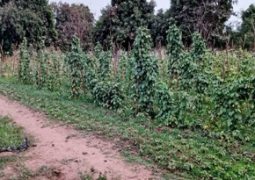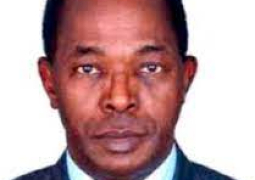
No doubt the election of Basirou Diomaye Diakhar Faye as the fifth president of the neighboring sisterly Republic of Senegal marks a turning point for that country. Since independence in 1960, successive Senegalese Presidents have come from the ruling political class from Leopold Sedat Senghore, Abdou Diouf, Abdoulaye Wade, to Macky Sall.
For many observers, the March 24th, 2024, elections was going to be business as usual. One of the key political figures from the traditional political class was expected to triumph and continue the long tradition of elitist democracy. To the surprise of many, the 44 year-old former taxman from the banned political party of PASTEF, Basirou Diomaye Diakhar Faye, was identified and selected by the banned party leaders under the instructions of Ousmane Sonko, the firebrand leader of the PASTEF party.
He now resigned from PASTEF as secretary general when he assumed office as President of Senegal on April 2nd, 2024.
However, a huge political shock was to follow this choice of candidate by Sonko. Faye not only won the elections but did so comprehensively in the first round of voting. He needed at least over 50% of the total votes cast to avoid a run-off with the runner-up candidate of the first round. He won it by over 54% of the votes. It was an electoral victory of seismic proportions in Senegal and the West Africa region.
Sonko, now Prime Minister of Senegal and his comrades had campaigned on an anti-corruption platform that resonated with most Senegalese especially the youths. They were able to galvanise an entire generation to look to a younger leadership unshackled by tradition by the sheer power of their message of breaking away from the elitist politics of the past.
It was a hopeful message about their future. It was a message that was bought by the people at a time when they were hungry for change and it worked magic. Finally, it was time for a revolution in Senegal too. A paradigm shift from the known predictable world of ideological politics to the uncertain world of revolutionary class politics. A challenge that the people of Senegal have embraced with euphoric optimism. Unlike the recent spate of violent change in West Africa as seen in Guinea Conakry, Mali, Burkina Faso, and Niger, the democratic change in Senegal has added another layer of political change reminiscent of Harold MacMillan’s wind of change admission in South Africa.
While most of these recent revolutions in the region took the traditional form of change by force of arms, The Gambia in December 2016 and Senegal in March 2024 were the exception. Both are peaceful political revolutions to match any other in world history.
In the case of The Gambia, the elections in December 2016 brought new opportunities and challenges for the tiniest country on mainland Africa. The peaceful nature of the revolution was almost marred by the refusal of the defeated incumbent President Yahya Jammeh to peacefully leave office after his opponent Adama Barrow was declared winner by the country’s Independent Electoral Commission (IEC) even though he had initially conceded defeat.
This political impasse created uncertainty in the country and a tense atmosphere that could have spiraled into full-blown violence but for the maturity of the Gambian people and opposition political leadership that had backed the president-elect Adama Barrow.
Then stepped in ECOWAS with Senegalese forces under President Macky Sall in the lead. Since Jammeh’s ouster by the threat of the use of force by ECOWAS, West African troops but mostly Senegalese forces had been stationed in The Gambia at the invitation of the Gambia government and funded initially by the EU.
It was hoped that during the period of their stay in the country, the new government of Adama Barrow will take the opportunity to initiate and complete all the necessary reforms especially security sector reforms in order to ensure that a revamped and improved security apparatus will be able to adhere to republican values and protect the democracy that had ushered in the change of government.
With the change of government in Senegal under a young leadership that had campaigned on promises of curbing corruption, reducing spending, and reprioritization of government services.
Senegal’s security has always been inextricably linked to the Gambia’s security and both governments know this fact. The future is one of greater collaboration and cooperation between the two countries. They are bound by fate, culture, religion, destiny and ancestry. One people in two countries thanks to colonialism!
Therefore, the Barrow government must continue to work closely with its Senegalese counterparts in the mutual interest of both countries. At the same time, the Barrow government must also accelerate its security sector reform process to ensure that significant progress is made in time for a sustainable and republican security apparatus in the Gambia. The security sector reform is still in progress. Time is now really of the essence!



